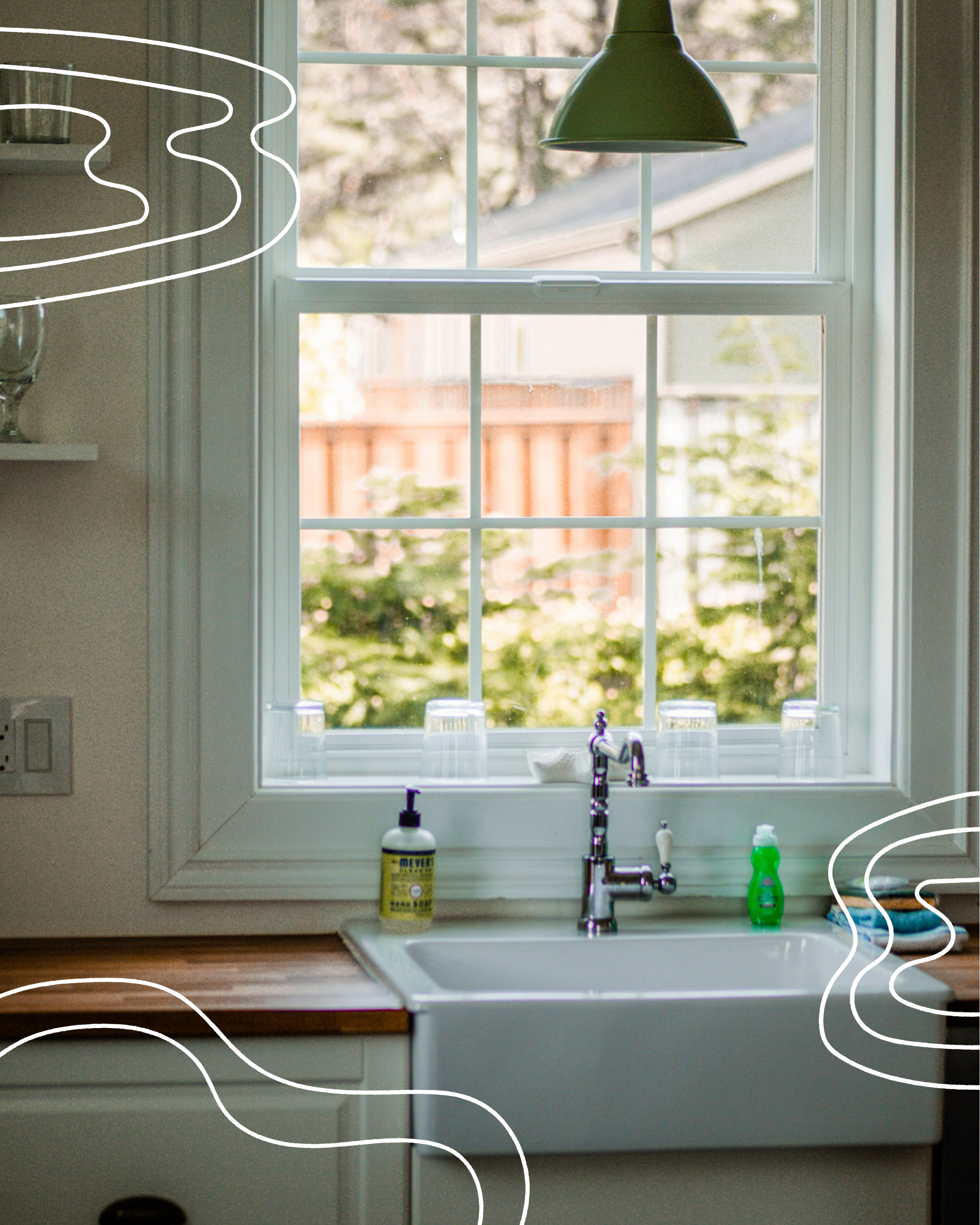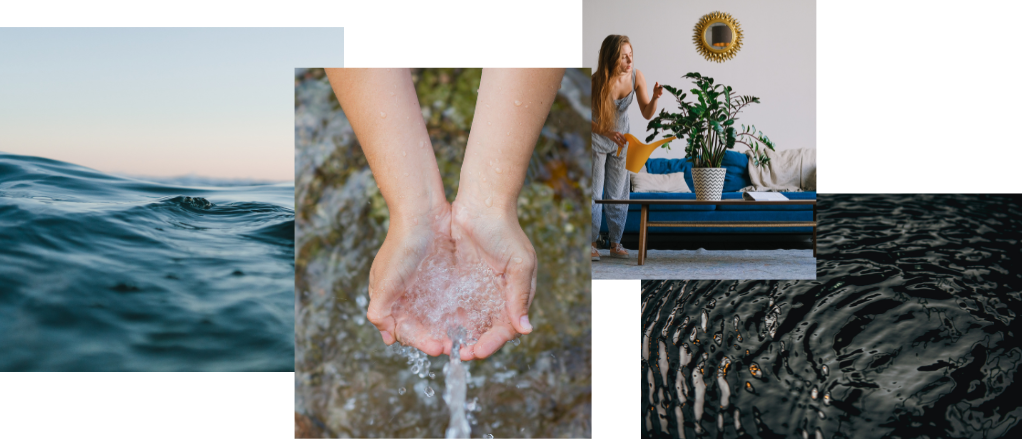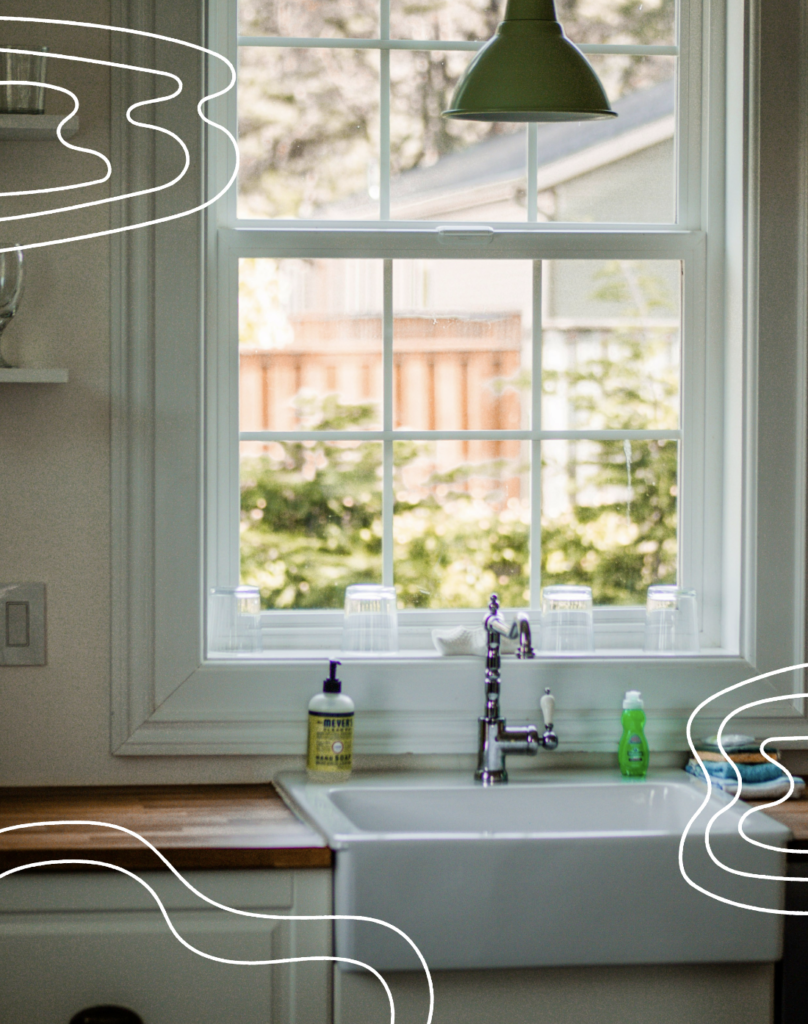Everyday water conservation: a practical guide to sustainable habits

Water, our most precious resource, seems to flow freely throughout our lives – but conserving it is one of our greatest challenges. In this article, we’ll share a few tips to transform your habits by taking simple but impactful steps to use less water in your everyday life.

Reducing water consumption at home
By rethinking our daily habits, we can drastically reduce our water consumption and, by extension, our environmental impact.
Here are a few changes you can make at home:
- Use a washing basin for fruits and vegetables instead of running the tap while you rinse them off.
- Recycle the water you use for cooking to water your plants. On top of reducing your consumption, the nutrients it contains will keep your plants healthy.
- Opt for faster showers – they’re way more efficient than baths! By installing low-flow showerheads, you can reduce your water consumption even more.
- Install low-flow toilets can drastically reduce the quantity of water required for each flush.
- Monitoring and repairing your pipes can prevent you from wasting thousands of liters of water per year. From dripping taps to leaky toilets, every fix counts.
- Use your appliances wisely. Don’t start your washing machine or dishwasher until they’re completely full to maximize each cycle and reduce water waste.
- Educate and spread awareness. Share the importance of these efforts with your friends and family. Educating others about water conservation can inspire them to adopt more sustainable habits.

Optimizing water consumption in the garden
There are so many clever and sustainable ways to nurture your little patch of greenery without using too much water! From installing smart systems to carefully selecting your flora, every effort is a step towards more environmentally-friendly gardening.
This summer, try:
- Choosing native or drought-resistant plants, which require less water to thrive. Plants that are poorly adapted to their environment require more water and care to stay alive.
- Using mulch to maintain soil moisture. Mulch is essential for retaining moisture inside of soil, reducing the need for frequent watering and protecting your plants from thermal extremes.
- Installing a rainwater harvesting system is a practical solution for reusing natural water for gardening, reducing your dependence on potable water.
On an individual scale, each water-saving effort might seem tiny – like a drop in an ocean of environmental challenges. But all together, these drops form a powerful current of change and positive impact. By multiplying our efforts and adopting as many sustainable practices as possible, we can make a real difference.
And where does Eska fit into all of this? As a company, we have implemented a number of initiatives to protect the source of our water and the environment that surrounds it. We go to great lengths to look after the Saint-Mathieu-Lac-Berry Esker and the pristine forest it calls home. You can learn more about these efforts here.
Read also
A Rock-Solid Commitment to Sustainability
The circular economy: definition and impact
Everything you need to know about collecting rainwater for your garden
Comments are closed.
- Published on , in
- Blog
- The Recycle of Life
share
Read also
See all